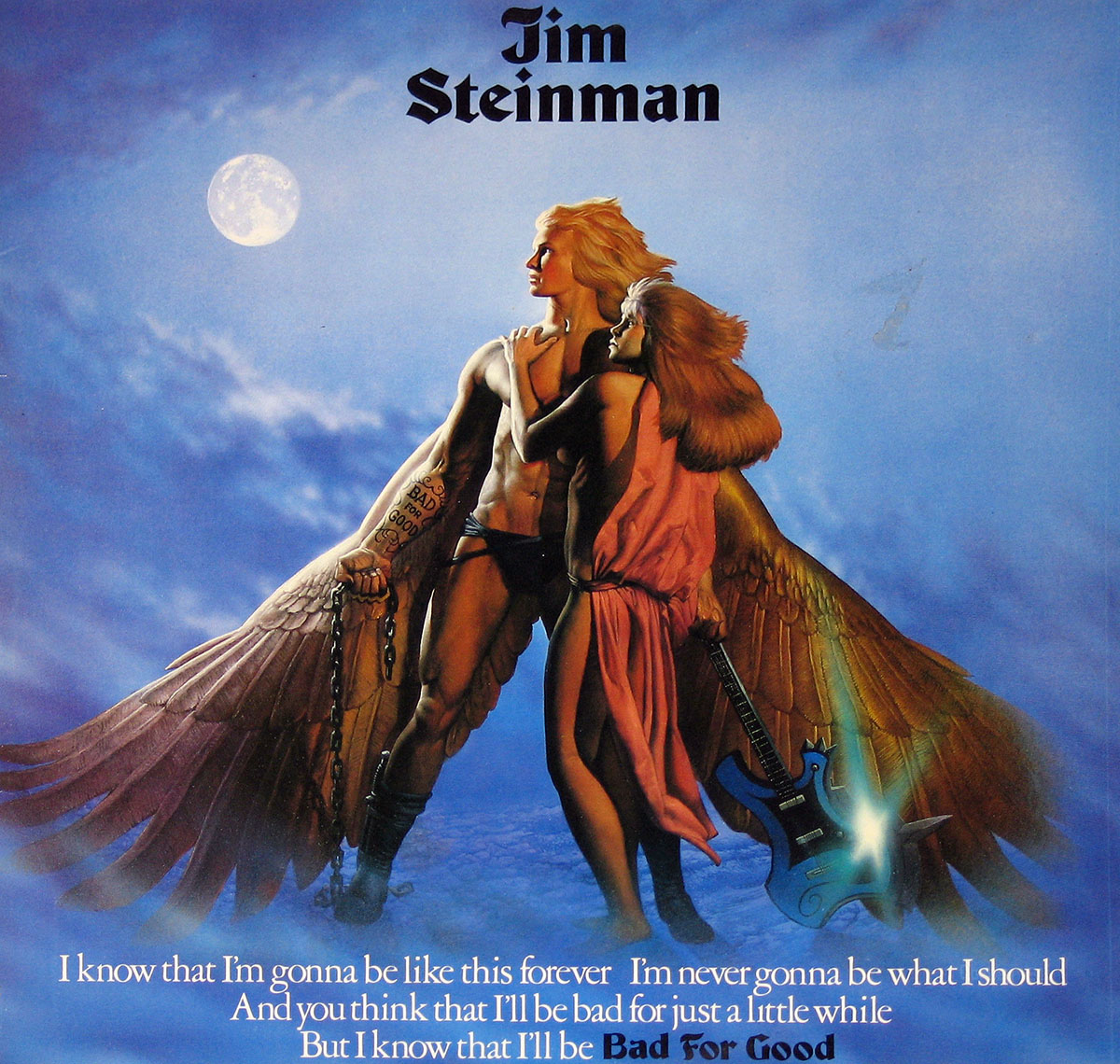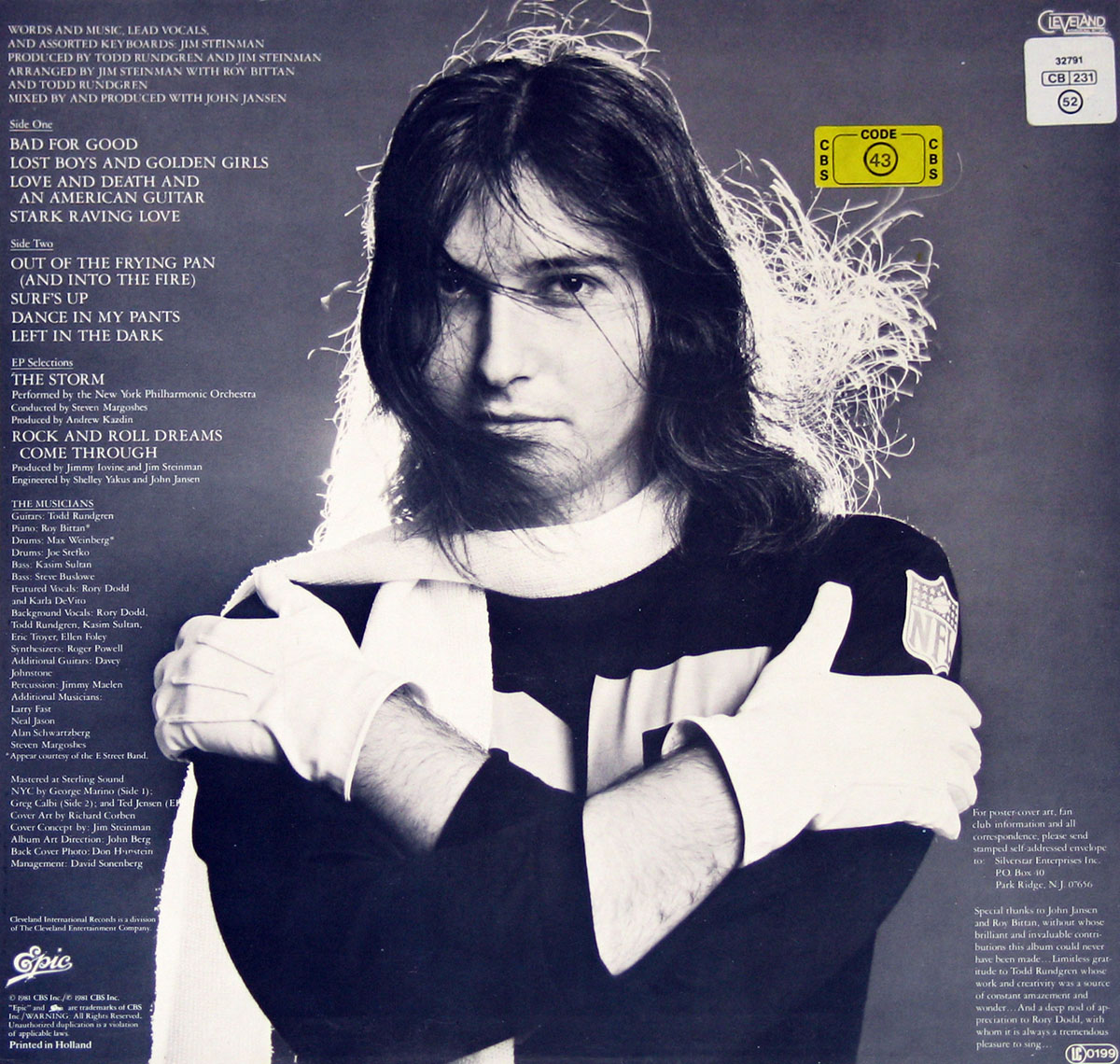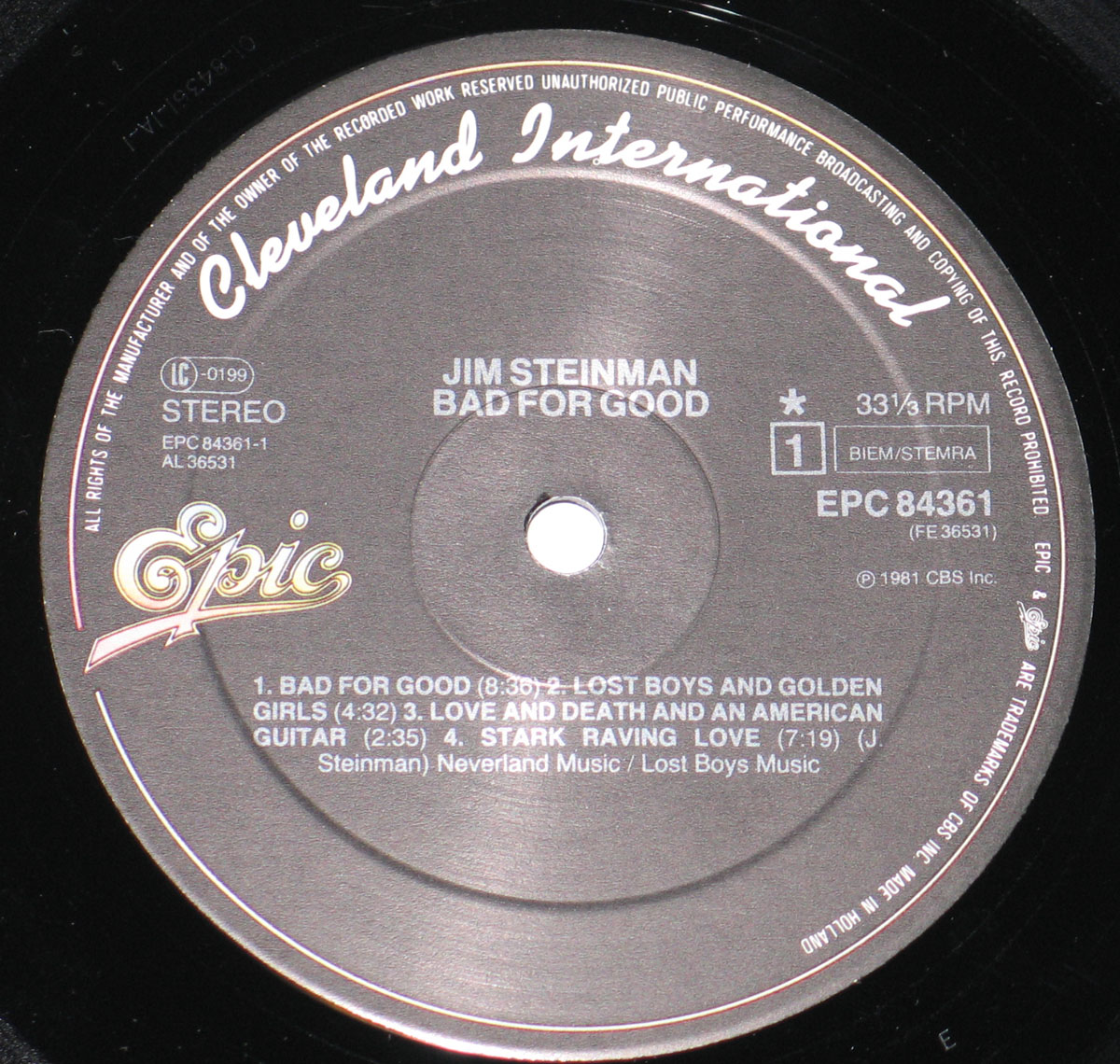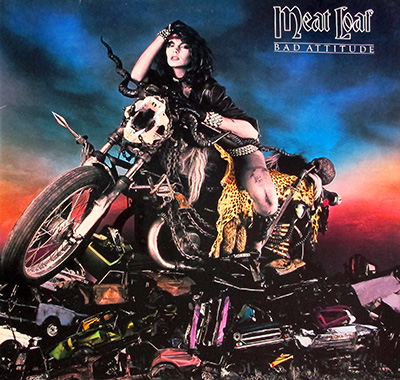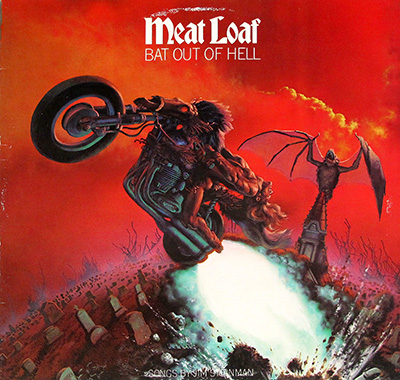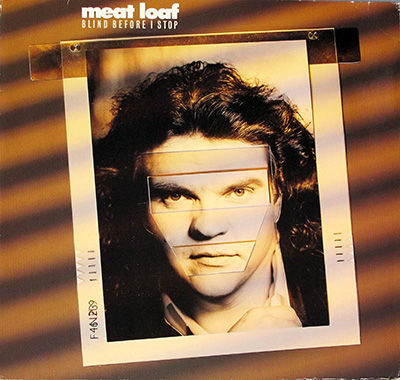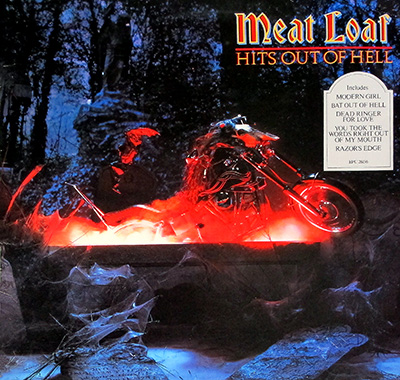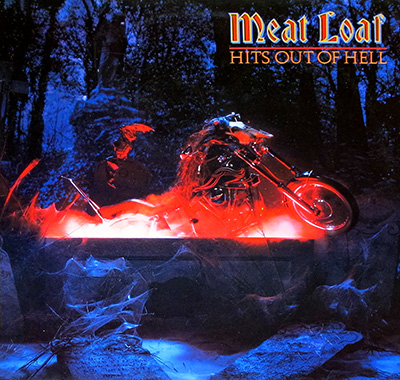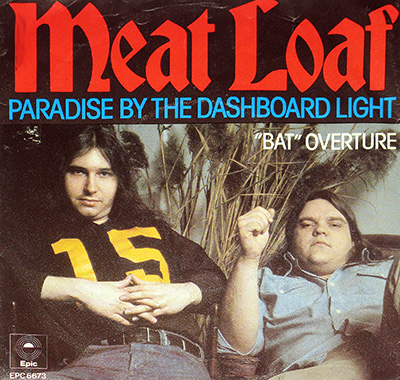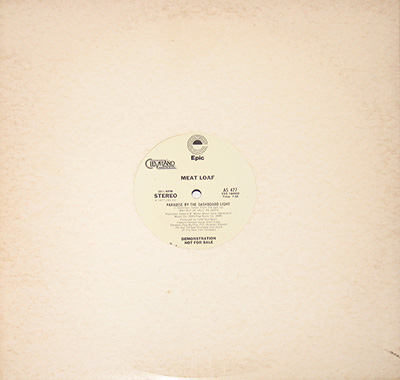Jim Steinman – Bad for Good (1981)
Historical Context
Released in 1981, Bad for Good emerged during a transitional period in rock music. The grandiose, theatrical style of the 1970s was giving way to leaner new wave aesthetics and the early tremors of MTV-driven pop. Yet Jim Steinman—already acclaimed for his bombastic songwriting on Meat Loaf’s 1977 megahit Bat Out of Hell—refused to downsize his vision. Originally intended as the next Meat Loaf album, Bad for Good became Steinman’s solo debut after Meat Loaf lost his voice due to vocal strain. This twist of fate launched one of the most unusual solo records of the decade.
Musical Exploration and Style
Bad for Good is unabashedly operatic rock—equal parts Broadway, Wagner, and Springsteen. It plays out like a teenage fever dream soaked in motorcycles, gothic love stories, and apocalyptic fantasies. The album opens with the title track, a soaring, multi-part anthem drenched in layered vocals and shifting tempos. Side One continues with “Lost Boys and Golden Girls,” a wistful ballad that fuses adolescent yearning with classical piano stylings by Roy Bittan. “Love and Death and an American Guitar,” a spoken-word monologue backed by distorted riffs, showcases Steinman’s theatrical flair and obsession with mythic Americana.
The second side of the album features “Out of the Frying Pan (and Into the Fire),” a thunderous track later reinterpreted with Meat Loaf. “Surf's Up” is a sweeping piano-driven lament, while “Dance in My Pants” pairs Steinman with Karla DeVito in a campy duet brimming with sexual tension and over-the-top arrangement. The closer, “Left in the Dark,” is an emotional powerhouse—its later recording by Barbra Streisand in 1984 would bring the song broader recognition.
Music Genre
Firmly rooted in American rock, Bad for Good blends hard rock, progressive rock, and theatrical pop into a unique hybrid. It is a genre-defying work that aligns closely with the “rock opera” tradition, echoing The Who’s Tommy and Queen’s grandeur but funneled through Steinman’s feverishly romantic lens.
Controversies and Critical Debate
Critics were sharply divided. Some lauded Steinman’s vision and ambition; others found the album self-indulgent and overblown. Detractors criticized his vocals, which were perceived as unpolished compared to Meat Loaf’s operatic bombast. The album’s melodramatic tone and theatrical excess polarized listeners—some viewed it as a bold statement of artistic freedom, others as pure kitsch.
Production Team and Recording Studio
Produced by Jim Steinman alongside Todd Rundgren and John Jansen, the album features an elite roster of musicians. Rundgren—already known for his boundary-pushing production techniques—brought cohesion to the album’s sonic sprawl. Recording took place at Bearsville Studios in Woodstock, New York, a site known for fostering boundary-pushing artists. Roy Bittan and Max Weinberg of the E Street Band brought their signature precision, while backing vocals from Rory Dodd and performances by Kasim Sulton and Karla DeVito added character and dynamic tension.
Notable Release Differences
The original 1981 LP, released on Cleveland International and Epic Records, was issued with a custom inner sleeve featuring lyrics and production details. Some international editions—such as the Dutch pressing—differed slightly in weight (140 grams) and sleeve print quality. Later CD reissues included bonus tracks or remastered audio, but lacked the oversized visual flair of the vinyl presentation.
Jim Steinman: The Theatrical Architect of Rock (1970s–1980s)
Introduction
Jim Steinman was more than a songwriter—he was a mythmaker. Throughout the 1970s and 1980s, Steinman carved out a singular space in rock history, blending Wagnerian drama, Broadway theatrics, and teenage fantasy into thunderous anthems. Best known for his work with Meat Loaf, Steinman also left his mark on a wide range of artists, redefining the possibilities of rock as both spectacle and storytelling.
The 1970s: The Birth of a Rock Opera Vision
Jim Steinman's breakthrough came from unlikely origins: musical theater. He wrote the rock musical The Dream Engine while at Amherst College, catching the attention of New York theater producers. By the mid-1970s, he had developed Neverland, a dystopian Peter Pan-inspired rock opera. Though the full production never reached Broadway, it became the creative backbone for his most iconic project—Bat Out of Hell.
In 1977, Steinman released Bat Out of Hell in collaboration with singer Meat Loaf. Produced by Todd Rundgren, the album fused piano-laced ballads, roaring guitars, and operatic vocals into a dramatic opus that defied rock norms. Songs like “Paradise by the Dashboard Light,” “Two Out of Three Ain’t Bad,” and the title track became instant classics. Despite a slow commercial start, the album eventually became one of the best-selling records of all time, a testament to Steinman’s uncompromising vision.
Creative Collaboration with Meat Loaf
The partnership between Steinman and Meat Loaf was symbiotic: Steinman’s writing provided the theatrical script, and Meat Loaf delivered it with unmatched vocal ferocity. Their chemistry was electric but turbulent. After the massive success of Bat Out of Hell, tensions flared. Meat Loaf lost his voice due to exhaustion and strain, forcing Steinman to shelve plans for a direct follow-up.
Instead, Steinman recorded many of the intended songs himself on his 1981 solo album Bad for Good. Though not as commercially successful as Bat, it further revealed Steinman’s commitment to grandeur. Tracks like “Out of the Frying Pan” and “Left in the Dark” were later reinterpreted by other artists, including Meat Loaf and Barbra Streisand.
The 1980s: Expanding His Empire
The 1980s saw Steinman broadening his reach. In 1983, he wrote and produced Bonnie Tyler’s global smash “Total Eclipse of the Heart,” a gothic love song that became her signature hit. Its stormy arrangement and soaring chorus bore all the hallmarks of Steinman’s style—melodrama, intensity, and emotional excess. That same year, he penned “Making Love Out of Nothing at All” for Air Supply, fusing soft rock with epic arrangements.
Steinman also reunited with Meat Loaf for Dead Ringer (1981), though the album received a lukewarm response compared to their earlier triumph. Throughout the decade, he contributed to film soundtracks, including Streets of Fire (1984), which featured his song “Tonight Is What It Means to Be Young.”
His production of Barbra Streisand’s “Left in the Dark” in 1984 introduced his signature bombast to adult contemporary audiences, demonstrating his adaptability without sacrificing his identity.
Style and Legacy
Steinman’s songs were characterized by their sweeping arcs, verbose lyrics, and apocalyptic imagery. He treated rock as high drama, drawing from classical motifs, gothic literature, and teenage rebellion. Whether through Meat Loaf’s operatic vocals or Bonnie Tyler’s raw emotion, Steinman’s work felt like a theater stage bursting into flames—melodic, maximalist, and mercilessly sincere.
Though often polarizing, Steinman’s influence on rock and pop in the late 20th century is undeniable. He didn’t just write songs—he built worlds. His work from the 1970s and 1980s remains a towering testament to what happens when rock refuses to compromise.
